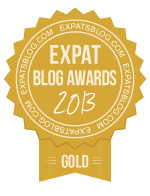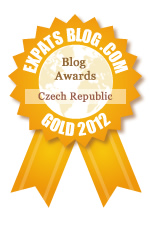Several people have asked if I was going to let people vote on where I should travel to this year like I did in 2013. Originally, I was going to. I even had some very interesting places picked out for people to vote on - Antarctica, South Africa, North Korea, New Zealand or Iran. The reason that I didn't do it is because my parents are finally making their first trip across the pond and coming to visit me.
Not only are my parents coming to Euroland for the first time, my aunt and uncle are coming too, and they will all be here for six weeks. The itinerary includes Czechland, Germany, Austria, Slovakia, Poland and Hungary.
Many people have asked why they aren't going to take an extra couple of days and see London or Paris or Rome too. And quite frankly, the goal is to come see where I live. Six countries in six weeks is plenty for a first visit. My parents definitely don't want to do one of those "11 countries in seven days" kind of tours. They are more interested in seeing everyday life.
The plan is to start off in Prague and be there for ten days. This will give them time to get over the jet lag. We will have plenty of day trips to Plzeň, Kutná Horá, Český Krumlov, Karlovy Vary, Karlštejn, Terezín and to Dresden.
Then it's off to Brno for everyone to see where I live. I'll for sure take them to Olomouc and Lednice-Valtice. Bratislava too. It will also be burčák and wine festival time so these are must-dos.
My mom saw some TV program about Olešnice, a village about an hour from Brno (and one that I've never heard of), where they dye indigo fabric. I guess I need to plan out a trip there as well.
Three weeks is a lot of time together so I will then ship them off to Budapest for five days. We may need a break from each other and it will let me get some work done in the office.
A few more days in Brno and then we're all off to Kraków for a week. Claudia and Tünde will join us for a few days there as well.
Then we will be off to Vienna for a few days. Vienna will be my last stop as tour guide. I will come back home to Brno and the four of them will go to Munich for another week before they fly back to the USA.
It will be great for my family to see Brno in person. They will also finally get to meet my friends which they've heard so much about over the years. It's also going to be interesting to see their perspective on some of the differences between Czechland and the USA. It's going to be a lot of fun but I can't believe that they will be here next week.
 |
| Six countries in six weeks |
Many people have asked why they aren't going to take an extra couple of days and see London or Paris or Rome too. And quite frankly, the goal is to come see where I live. Six countries in six weeks is plenty for a first visit. My parents definitely don't want to do one of those "11 countries in seven days" kind of tours. They are more interested in seeing everyday life.
The plan is to start off in Prague and be there for ten days. This will give them time to get over the jet lag. We will have plenty of day trips to Plzeň, Kutná Horá, Český Krumlov, Karlovy Vary, Karlštejn, Terezín and to Dresden.
Then it's off to Brno for everyone to see where I live. I'll for sure take them to Olomouc and Lednice-Valtice. Bratislava too. It will also be burčák and wine festival time so these are must-dos.
My mom saw some TV program about Olešnice, a village about an hour from Brno (and one that I've never heard of), where they dye indigo fabric. I guess I need to plan out a trip there as well.
Three weeks is a lot of time together so I will then ship them off to Budapest for five days. We may need a break from each other and it will let me get some work done in the office.
A few more days in Brno and then we're all off to Kraków for a week. Claudia and Tünde will join us for a few days there as well.
Then we will be off to Vienna for a few days. Vienna will be my last stop as tour guide. I will come back home to Brno and the four of them will go to Munich for another week before they fly back to the USA.
It will be great for my family to see Brno in person. They will also finally get to meet my friends which they've heard so much about over the years. It's also going to be interesting to see their perspective on some of the differences between Czechland and the USA. It's going to be a lot of fun but I can't believe that they will be here next week.














.jpg)


.jpg)




























